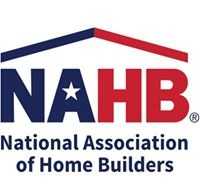WASHINGTON, D.C. – February 21, 2013 – (RealEstateRama) — Exceptionally low interest rates helped ensure a slight gain in nationwide housing affordability amid relatively stable house prices in the final quarter of 2012, according to the National Association of Home Builders/Wells Fargo Housing Opportunity Index (HOI), released today.
In all, 74.9 percent of homes sold between the beginning of October and end of December were affordable to families earning the U.S. median income of $65,000. This was up nearly a percentage point from the 74.1 percent of homes sold that were affordable to median-income earners in last year’s third quarter.
“The most recent housing affordability data should be encouraging to many prospective home buyers, because it shows that homeownership remains within reach of median-income consumers even as most local markets appear to be on a recovery path,” said NAHB Chairman Rick Judson, a home builder from Charlotte, N.C. He noted that the most recent reading of the NAHB/First American Improving Markets Index found that 259 out of 361 metros currently qualify as improving, including representatives from all 50 states and the District of Columbia.
“The median price of all new and existing homes sold in the fourth quarter of 2012 was $188,000, essentially unchanged from the previous quarter’s $189,000 that marked a nearly three-year high,” noted NAHB Chief Economist David Crowe. “It is noteworthy that affordability remains historically high thanks to favorable mortgage rates even as national home price indexes show some rise in values.”
Ogden-Clearfield, Utah held its position as the nation’s most affordable major housing market for a second consecutive quarter at the end of 2012. There, 93.7 percent of all new and existing homes sold were affordable to families earning the area’s median household income of $71,500 – up slightly from the 93.2 percent of homes affordable to median-income earners in the third quarter.
Also ranking among the most affordable major housing markets in respective order were Dayton, Ohio; Indianapolis-Carmel, Ind.; Lakeland-Winter Haven, Fla.; and Syracuse, N.Y.
Among smaller housing markets, Fairbanks, Alaska, remained at the top of the affordability chart with nearly all homes sold in the quarter — 99.6 percent – affordable to those earning the median income of $92,900. Other small housing markets at the top of the index included Cumberland, Md.; Springfield, Ohio; Monroe, Mich.; and Mansfield, Ohio, in that order.
After 18 consecutive quarters at the bottom of the affordability chart, New York-White Plains-Wayne, N.Y.-N.J. switched places with San Francisco-San Mateo-Redwood City, Calif., which had been the second-to-least affordable market. Just 28.4 percent of homes sold in San Francisco during the fourth quarter were affordable to families earning that area’s median income of $103,000.
Other major metros at the bottom of the affordability chart included Santa Ana-Anaheim-Irvine, Calif.; Los Angeles-Long Beach-Glendale, Calif.; and Honolulu, Hawaii, in that order.
The least affordable small housing market in the fourth quarter was Ocean City, N.J., where just 43.5 percent of homes sold were within reach of families earning the median income of $71,100. Other small metros at the bottom of the affordability chart included San Luis Obispo-Paso Robles and Santa Cruz-Watsonville, Calif., followed by Dover, Del., and Santa Barbara-Santa Maria-Goleta, Calif., respectively.
Please visit www.nahb.org/hoi for tables, historic data and details.
Editor’s note: The NAHB/Wells Fargo Housing Opportunity Index is a measure of the percentage of homes sold in a given area that are affordable to families earning the area’s median income during a specific quarter. Prices of new and existing homes sold are collected from actual court records by Core Logic, a data and analytics company. Mortgage financing conditions incorporate interest rates on fixed- and adjustable-rate loans reported by the Federal Housing Finance Agency.
The NAHB/Wells Fargo HOI is strictly the product of NAHB Economics, and is not seen or influenced by any outside party prior to being released to the public.







